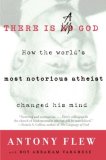Today, I wanted to give an excerpt from a helpful booklet from Wheaton College entitled Understanding Homosexuality. Dr. Gilbert Bilezikian (Ph.D., Professor of Biblical Studies, Emeritus, Wheaton College) challenges the Christian Church on our attitude toward homosexuals at the conclusion of his article in the above mentioned booklet “Part 1: Biblical and Theological Understanding”.
Dr. Bilezikian’s concerns are especially poignant for the more conservative side of evangelicalism. Many fundamental Baptists seem to have such a view of homosexuality by default. It’s easy for any of us to stoop to this perspective. I hope these remarks, however, can help us be careful not to despise homosexuals but rather be positioned to actually serve them as Christ would.
And now a word to the rest of us who are not battling homosexuality. I suppose we represent a broad variety of attitudes, from thoughtless unconcern to violent revulsion. Both of these extremes are sinful. The biblical command, regarding our response to a brother or sister who struggles with a problem we do not have is for the strong to help the weak””neither indifference nor rejection, but the extension of God’s redemptive and restoring love. Particularly grievous among Christians is the sin of homophobia””the hatred of homosexuals, a judgmental, censorious spirit expressed in ridicule, queer jokes, impersonation of gay mannerisms, macho stories of gay-bashing.
I would like Christ himself to speak to this kind of attitude as he does in the Sermon on the Mount in the Gospel of Matthew, chapter 7. “Judge not, that you be not judged.” An absolute, categorical prohibition on the part of Jesus. Can’t we make exceptions in the case of gays? Isn’t that sin bad enough so we can allow ourselves to judge? It’s as if Jesus were saying, “Read my lips! Judge not.” And that is exactly what he means, “Judge not.” In fact, Paul adds to this as he says in I Corinthians, chapter 5, verses 11-12, “Don’t even judge outsiders, because that is God’s business. You are not in the business of judging. You take care of yourself and of your community.” And Christ adds a warning, “So that you will not be judged.” In other words, the same harshness that you apply to your judging will be applied to your sins. The Scripture reminds us that judgment is without mercy to those who have shown no mercy. And Jesus gives reasons for his absolute prohibition, “for with the judgments you pronounce, you will be judged, and the measure you give will be the measure you’ll get.” He says there is no double standard with God. With us, there is. We have a tendency to be hard on others, easy on ourselves. Not with God!
The second reason, “Why do you see the speck that is in your brother’s eye but do not see the log which is in your eye?” What is your real motivation for judging? It indicates that you have problems yourself and that you are trying to mask them with this kind of diversionary tactic by your attacks on other people. Often most hate-filled critics of homosexuals are people who feel insecure about their own sexuality.
And the third reason Jesus gives for not judging is, “How can you say to your brother, let me take the speck out of your eye when there is a log in your own eye?” This question addresses the issue of competency. Are you competent to judge? Do you know what is going on in the soul of that brother or that sister? Can you identify the composites of their background, understand their upbringing, the decisions that have been made in the past, identify with their compulsions, with the intensity of their addictions? Can you understand that? In I Corinthians, chapter 4, verse 5, the apostle Paul tells us that God can do that because he knows the secrets in the hearts of humans. But can you stand in someone else’s shoes, and can you say, “I would have done better under the same circumstances” ? What is the proper attitude? Jesus says, “You hypocrite, first take the log out of your own eye, and then you will see clearly to take the speck out of your brother’s eye.” He says, “First take care of yourself. Clean up your act, and when you are righteous, you may address your brother. Only then, may you take the speck out of your brother’s eye.” You will not judge but help the person.
And there are different ways of helping the person. There are patterns in the Scriptures for exhorting each other, for rebuking each other on an individual basis first, and then getting the community involved, and confronting in love. When that doesn’t work, the offending person becomes to us “like a publican and a Gentile,” said Jesus (Matt. 18: 15-17). What does that mean? Jesus loved Gentiles and publicans. He ministered to them, and he died for them. So this doesn’t mean we are supposed to reject them. It means that we make the redeeming love of God real to them. We start again from the ground up, from square one. We don’t give up. God is not in the business of rejecting people. He wants all people to be saved because they matter to him. Each one of us needs to present himself or herself before God, whether we are struggling with this problem or with another problem which may be just as grievous in the eyes of God as homosexuality.
We need to confess to God that we are all partakers in fallen humanity, and that we are often stuck in our sinful state. Sometimes our sins are flagrant, sometimes they are hidden in the secret places of our souls. We need to confess the sins that pertain to the misuse of our sexuality, one way or the other, even the sins that pertain to our thought life. The apostle Paul put in the same category the sin of homosexuality and those of greed and reviling. Some of us have to confess that by reviling homosexuals we have entered that same category of gravity of offense before God.
We need to come to God as a community but also as individuals. We must ask him to search our hearts and to cause us grief where there is need for repentance. But we need also to remember that if we say we have no sin, we deceive ourselves, and the truth is not in us. And yet, if we confess our sin, God is faithful and just, and will forgive our sins and cleanse us from all unrighteousness. [emphasis added]
 Today, April 25 at 6pm Central Time, I’ll be interviewed by my friend Scott Oakland of The Reformed Cast on the topic: “What is KJV-Onlyism?”
Today, April 25 at 6pm Central Time, I’ll be interviewed by my friend Scott Oakland of The Reformed Cast on the topic: “What is KJV-Onlyism?”
 I’m sure my astute readers are all up to speed on the open theism debate. Then again, some of you probably aren’t. And I haven’t really ever debated the issue, so I had to do some homework too.
I’m sure my astute readers are all up to speed on the open theism debate. Then again, some of you probably aren’t. And I haven’t really ever debated the issue, so I had to do some homework too.